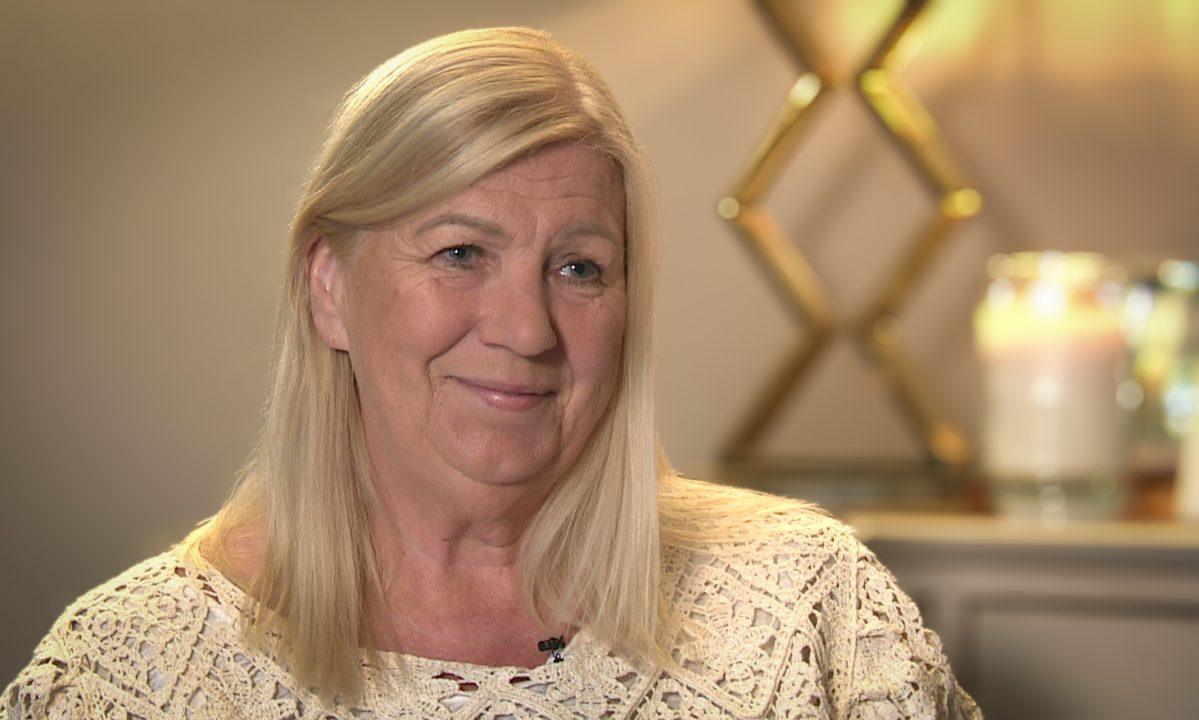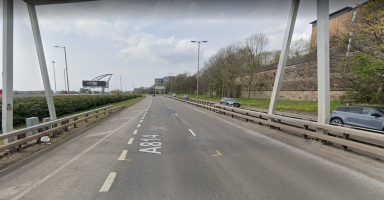When the pain became unbearable, Marie McNicol broke down in her doctor’s office and said she couldn’t cope for another minute.
Marie has arthritis and paid for a private scan ten years ago that revealed three of the vertebrae in her lower spine were wearing away.
The condition forced her to give up work and has led to extreme isolation in the past.
“I always worked in pubs and restaurants and was full of life,” Marie told Scotland Tonight.
“But by the time I was in my early 50s, I was absolutely washed out. I was struggling with everything. I had two sticks at the time and I didn’t want to go out with my sticks.
“It got to a stage where I pretty much didn’t go anywhere for a long time, which was horrible. I actually burst out crying at the doctors one day, and said, ‘look, I cannot cope with this another minute. I really can’t’.”
Marie’s experience exposes the harsh reality facing many Scots living with chronic pain and the urgent need for better services.
Doctors and patients are calling for greater investment into services supporting people with chronic pain across the country
As many as one in two adults are living with the condition, and in some cases, they are being forced out of work because of it.
Chronic pain is defined as pain lasting more than 12 weeks, and can be caused by an injury, a condition like arthritis, or, in some cases, by a psychological trigger, like stress or trauma.
It is most prevalent in the most deprived areas of the country, but in the most affluent areas it is still thought to affect one in three.
Dr David Blane, a GP based in Possil, in the north of Glasgow, says his patients are struggling with the effects of chronic pain.
He told Scotland Tonight: “It is one of the most complex things we deal with – and no two people with chronic pain are the same, so you have to tailor the response.
“You have to first of all make the correct diagnosis, and that can be challenging. And then you’ve got to try and work out what the best support might be.”
Despite the increasing prevalence in areas like his, Dr Blane explains that demand doesn’t necessarily translate into more resources.
“At the moment, there is a bit of a postcode lottery in terms of pain support. There are some health boards that have good multidisciplinary services.
“I would argue we need to have more of them closer to people where they live in communities, and more in primary care as well. But there are some health boards that don’t have that level of service. So there’s definitely lots more that can be done.”
Public health minister Jenni Minto said: “I am determined to improve care and support for people in chronic pain. Everyone should be able to access the services they need, when and where they need them.
“We continue to work closely with health boards to improve how services are accessed and delivered for patients.”
Marie was eventually referred to a pain management clinic in Lanarkshire, run by physiotherapist Cassandra MacGregor.
Patients are supported with their mobility and medication, and they’re offered alternative means of coping with their condition, like stress management.
By the time many patients meet Cassandra, they’re often at breaking point.
Cassandra told STV News: “Often I have to help people to kind of understand what chronic pain is, and help people in a way to come to terms with it being there and with the nature of this condition.
“Marie is a good example of this. If somebody is limping and they’re struggling to walk, sometimes if they’ve not really come to terms with what’s going on, they don’t want to use a walking aid because that means that they’re old before their time or that they see themselves as disabled.
“And so even after four or five sessions, if somebody is using a walking aid, to me it shows that they’ve kind of moved forwards a little bit and they’re walking well with it.”
Marie says that coming to terms with her pain and being able to regain some independence has made a huge difference to her life.
“It was like a world of knowledge,” she said. “Even if it’s just to get your breathing under control, get yourself steadied down so you’re not sitting all shaky. It’s things that I still use now and they definitely help me.
“I’m not anywhere near where I was before. But at least I’m doing things now. I still can get up and go slowly, but I’ve got it in my heart that I want to do things.”
Watch the full report, Scotland Tonight: Living with Chronic Pain, at 8.30pm on STV and the STV Player.
Follow STV News on WhatsApp
Scan the QR code on your mobile device for all the latest news from around the country




























